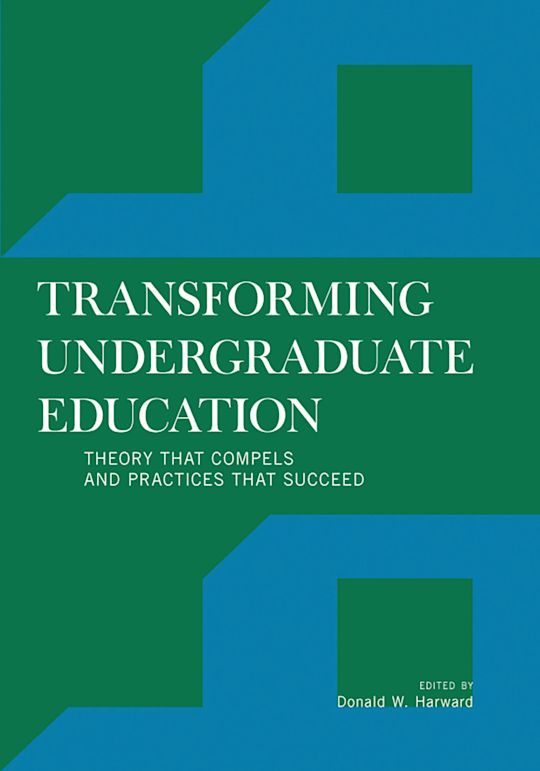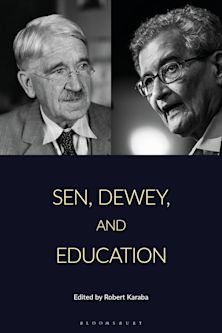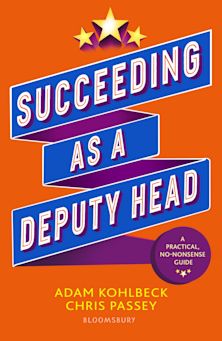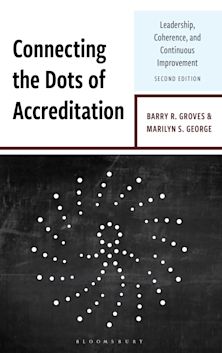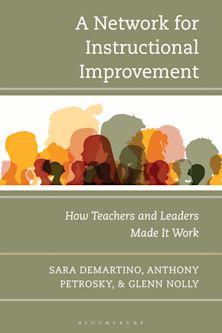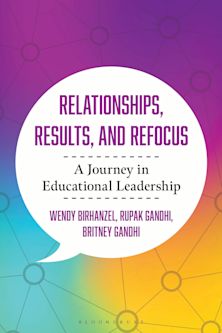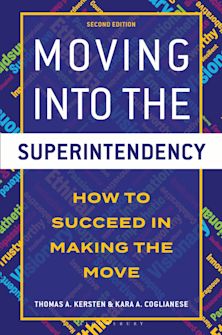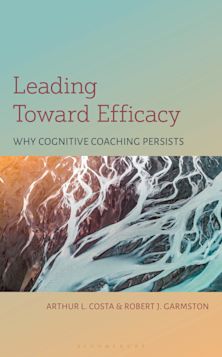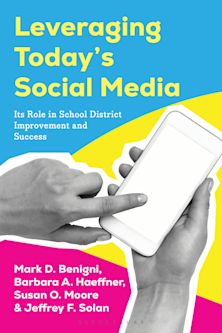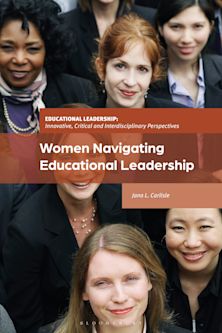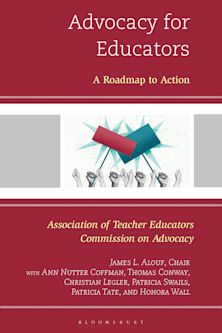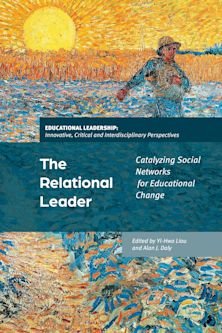- Home
- ACADEMIC
- Education
- Leadership and Management
- Transforming Undergraduate Education
Transforming Undergraduate Education
Theory that Compels and Practices that Succeed
Donald W. Harward (Anthology Editor) , Jann H. Adams (Contributor) , Jerzy Axer (Contributor) , Kenneth R. Bain (Contributor) , Randall J. Bass (Contributor) , Thomas Bender (Contributor) , Dessa Bergen-Cico (Contributor) , Joyce A. Bylander (Contributor) , Kent John Chabotar (Contributor) , Barry N. Checkoway (Contributor) , Catherine A. Crosby-Currie (Contributor) , Richard A. Detweiler (Contributor) , Ashley P. Finley (Contributor) , Cassia Freedland (Contributor) , Richard Guarasci (Contributor) , John K. Haynes (Contributor) , Debra Humphreys (Contributor) , Bruce Keith (Contributor) , Adrianna J. Kezar (Contributor) , Julie J. Kidd (Contributor) , Phyllis Lane (Contributor) , Devorah Lieberman (Contributor) , William M. Loker (Contributor) , Theodore E. Long (Contributor) , Linda J. Major (Contributor) , Michael V. McGill (Contributor) , Elizabeth McHugh (Contributor) , Mindy McWilliams (Contributor) , Nancy D.Mitchell (Contributor) , Sally Engelhard Pingree (Contributor) , Alice (Jill) N. Reich (Contributor) , Joan B. Riley (Contributor) , Daniel Tad Roach (Contributor) , Carol Geary Schneider (Contributor) , David M. Scobey (Contributor) , Valerie I. Sessa (Contributor) , Shalom Staub (Contributor) , Catharine R. Stimpson (Contributor) , William M. Sullivan (Contributor) , Lynn E. Swaner (Contributor) , Cynthia Wolf (Contributor) , Christine Zimmerman (Contributor)
Transforming Undergraduate Education
Theory that Compels and Practices that Succeed
Donald W. Harward (Anthology Editor) , Jann H. Adams (Contributor) , Jerzy Axer (Contributor) , Kenneth R. Bain (Contributor) , Randall J. Bass (Contributor) , Thomas Bender (Contributor) , Dessa Bergen-Cico (Contributor) , Joyce A. Bylander (Contributor) , Kent John Chabotar (Contributor) , Barry N. Checkoway (Contributor) , Catherine A. Crosby-Currie (Contributor) , Richard A. Detweiler (Contributor) , Ashley P. Finley (Contributor) , Cassia Freedland (Contributor) , Richard Guarasci (Contributor) , John K. Haynes (Contributor) , Debra Humphreys (Contributor) , Bruce Keith (Contributor) , Adrianna J. Kezar (Contributor) , Julie J. Kidd (Contributor) , Phyllis Lane (Contributor) , Devorah Lieberman (Contributor) , William M. Loker (Contributor) , Theodore E. Long (Contributor) , Linda J. Major (Contributor) , Michael V. McGill (Contributor) , Elizabeth McHugh (Contributor) , Mindy McWilliams (Contributor) , Nancy D.Mitchell (Contributor) , Sally Engelhard Pingree (Contributor) , Alice (Jill) N. Reich (Contributor) , Joan B. Riley (Contributor) , Daniel Tad Roach (Contributor) , Carol Geary Schneider (Contributor) , David M. Scobey (Contributor) , Valerie I. Sessa (Contributor) , Shalom Staub (Contributor) , Catharine R. Stimpson (Contributor) , William M. Sullivan (Contributor) , Lynn E. Swaner (Contributor) , Cynthia Wolf (Contributor) , Christine Zimmerman (Contributor)
You must sign in to add this item to your wishlist. Please sign in or create an account
Description
For those ready to participate in making transformative changes, Transforming Undergraduate Education provides evidence and case studies that suggest how steps can be taken and progress made. For those who are currently leading their campuses through a change in culture, this book offers support and encouragement. And for those who are pausing—looking positively but cautiously at what needs to change—at the prospects and challenges that may be encountered, Harward and the collection of authors offer an invaluable and innovative resource.
Given the intensity of interest regarding the “problems in higher education,” Harward notes how the systemic sources of those problems are infrequently addressed and even rarer is the offering of solutions or suggestions for positive actions. Harward and his colleagues see the achievement of this book as doing both—understanding the problems and offering solutions.
The book assembles the voices of leaders, scholars, practitioners, critics and others committed to higher education; collectively they combine theoretical considerations with analyses of fundamental issues related to learning and liberal education. The resulting arguments, theories, and evidence are sufficient to encourage significant—transformative—changes in higher education. Contributors offer examples of campus initiatives that document such changes, from directional nudges to major shifts of emphases and resources—from theoretical arguments to case studies and practices that suggest and guide constructive steps in efforts at change.
Table of Contents
Julie J. Kidd
Sally Engelhard Pingree
Acknowledgments
Introduction
Part I. The Theoretical Arguments and Themes
Donald W. Harward
Part II. The Issues, Rationale, Constraints and Practices
Chapter 1:A Copernican Moment: On the Revolutions in Higher Education
David M. Scobey
Chapter 2:The Ideals of the Liberal Artisan: Notes towards an Evolving Group Biography
Catharine R. Stimpson
Chapter 3: The Theories, Contexts, and Multiple Pedagogies of Engaged Learning: What Succeeds and Why?
Lynn E. Swaner
Chapter 4: Reuniting the “Often Neglected” Aims of Liberal Education: Student Well-Being and Psychosocial Development
Dessa Bergen-Cico
Chapter 5: Renewing the Civic Purpose of Liberal Education
Barry N. Checkoway, Richard Guarasci and Peter L. Levine
Chapter 6: Evoking Wholeness: To Renew the Ideal of the Educated Person
Theodore E. Long
Chapter 7: Knowledge and Judgment in Practice as the Twin Aims of Learning
William M. Sullivan
Chapter 8: Assessment and Evaluative Studies as Change Agents in the Academy
Ashley P. Finley
Chapter 9: Fostering Faculty Leadership for Sustainable Change in the Academy
Adrianna J. Kezar and Alice (Jill) N. Reich
Chapter 10: Threshold Concepts of Teaching and Learning that Transform Faculty Practice (and the Limits of Individual Change)
Kenneth R. Bain and Randall J. Bass
Chapter 11: Financing Change: Priorities, Resources, and Community Involvement
Kent John Chabotar
Part III. Implications Likely to Follow from Sustained Transformative Changes
Chapter 12: International Perspectives on Liberal Education: An Assessment in Two Parts
A: International Insights on the Essence of the Liberal Arts
Richard A. Detweiler
B: International Perspectives on Liberal Education: Polish Case Example
Jerzy Axer
Chapter 13: Implications of Transformative Change in Higher Education for Secondary Education: A Dialogue
Daniel Tad Roach and Michael V. McGill
Chapter 14: Do Disciplines Change? Would Flipping the Curriculum Right-Side Up Lead to Change?
Thomas Bender
Chapter 15: Liberal Education and the Policy Landscape
Carol Geary Schneider and Debra Humphreys
Part IV. Successful Models and Practices
Chapter 16: Introduction to Case Studies
Ashley P. Finley
Case Studies and Best Practices
Chapter 17: Public Sphere Pedagogy: Connecting Student Work to Public Arenas—California State University, Chico (California)
Cynthia Wolf and William M. Loker
Chapter 18: Engaging Faculty in “Learning Communities”: Lessons Learned—Dickinson College (Pennsylvania)
Shalom Staub
Chapter 19: Curriculum Infusion: Educating the Whole Student and Creating Campus Change— Georgetown University (Washington DC)
Joan B. Riley and Mindy McWilliams
Chapter 20: Attempting Organizational Transformational Learning from the Ground Up: Lessons Learned—Montclair State University (New Jersey)
Valerie I. Sessa
Chapter 21: Implementation of Peer Led Team Learning, a Leadership Initiative and Establishment of a New Faculty Track as Examples of Institutional Change—Morehouse College (Georgia)
Jann H. Adams and John K. Haynes
Chapter 22: Listening to the Agents of Pedagogical Change—St. Lawrence University (New York)
Catherine A. Crosby-Currie & Christine Zimmerman
Chapter 23: An Enduring Experiment—The Evergreen State College (Washington)
Phyllis Lane and Elizabeth McHugh
Chapter 24: Building the Capacity to Lead: Lessons Learned in the Evolution of the Leader Development System—United States Military Academy at West Point (New York)
Bruce Keith
Chapter 25: Building Institutional Capacity to Forge Civic Pathways—University of Nebraska, Lincoln (Nebraska)
Nancy D. Mitchell and Linda J. Major
Chapter 26: Successful Models and Practices—Wagner College (New York)
Devorah A. Lieberman and Cassia Freedland
Contributor Biographies
Index
Product details
| Published | Nov 16 2011 |
|---|---|
| Format | Ebook (Epub & Mobi) |
| Edition | 1st |
| Extent | 432 |
| ISBN | 9781442206762 |
| Imprint | Rowman & Littlefield Publishers |
| Publisher | Bloomsbury Publishing |
About the contributors
Reviews
-
Harward’s book offers useful tools and ideas for anyone working in higher education. From student organizations to the president of the college, the ideas and themes described offer ways to begin transforming higher education. When thinking of transforming higher education, the concept appears beyond one’s control, that the task is too great for a single person. The suggestions and ideas provided in this book explain how the changes do not need to come top down, but instead how individual members can begin to implement change that could occur in the curriculum, the campus culture, or in an individual advising appointment. I have noticed that my interaction with the students has changed as a result of reading this book. As I begin to work on various projects, I find that I am beginning to integrate the themes into practice. I believe that Harward’s book is an excellent tool to begin the conversation of how to initiate and create transformative change in higher education.
NACADA Journal
-
This important volume focuses on the fundamental challenge of undergraduate education: How can we create environments for deep learning that will flourish and last a lifetime? How can we help students understand themselves and others in ways that will liberate and strengthen them for creative, responsible, and meaningful lives? The authors draw upon history, theory, and years of research to propose changes in campus cultures, structures, and practices. This is a transformative book, a must-read for anyone who cares about the current and future state of higher education.
Nancy Cantor, Chancellor, Rutgers University, Newark, New Jersey
-
Ambitious in purpose and scope, this volume weaves together pithy insights from a stellar cast of contributors along with instructive institutional examples to explain how colleges can help undergraduates learn what they need to know and do to survive and thrive in the 21st century."
George D. Kuh, Chancellor's Professor Emeritus, Indiana University
-
Harward and his collaborators have constructed an up-to-the-minute account of the problems we struggle with in American higher education. Contemporary, nationally recognized experts contribute chapters on students' mental health, the challenges of delivering engaging, integrated educational experiences in an era of student mobility, and the new urgency of longstanding imperatives like faculty leadership, student success, and civic engagement.
Yet the authors anchor their stories in the universal traditions and purposes of liberal learning, making the book both timely and enduring. This is the kind of resource that will quickly bring the newcomer up to speed, while serving as a helpful reference for all of us for years to come.Kenneth O'Donnell, associate dean, California State University
-
Consider this a primer for liberal education in the 21st century. By gathering together the thoughts of some of the most important current thinkers on higher education into one volume, Harward and his collaborators have sketched an exciting vision of educational excellence for our time. This collection should be read by educators, policy makers, parents of college-age children, and anyone else who cares about the future of higher education in this country.
George J. Sanchez, Dornsife College vice dean for Diversity and Strategic Initiatives, University of Southern California
-
Transforming Undergraduate Education makes a significant contribution to the current conversation in higher education based because it is grounded in the experiences and wisdom of multiple national and campus based leaders. During this time when multiple publics question the purpose, models and outcomes of higher education, this manuscript deftly addresses needs and outcomes from multiple perspectives: classroom, curricular, campus, and national. Through the connection between theory and application, this book voices theory needed to transform education and application that leads to success. This volume is a much needed contribution to the literature and to the practice of transforming undergraduate education.
Devorah Lieberman, president, University of La Verne









